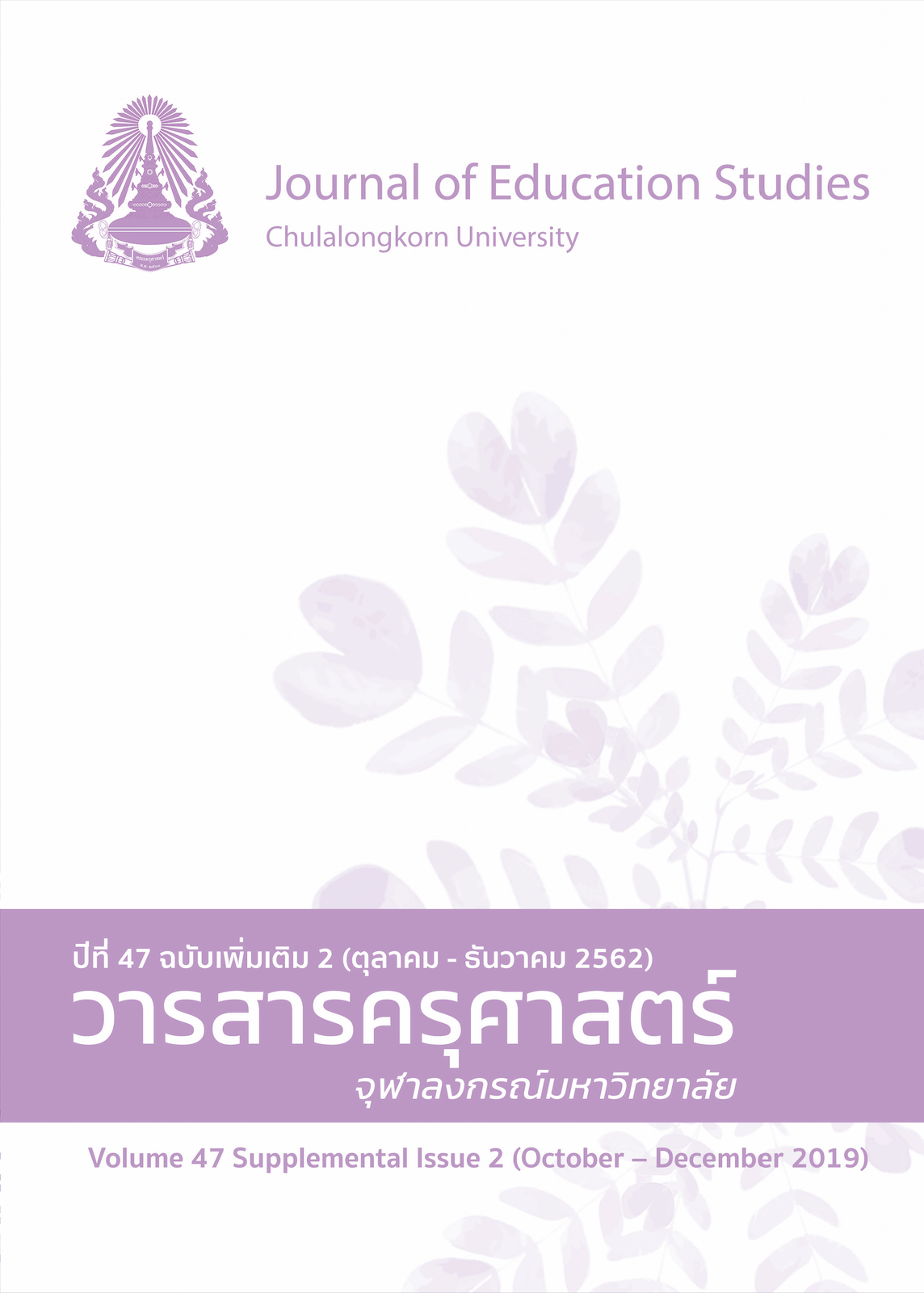A Study of the Management of Private Vocational Education Institutions Based on the Concepts of Parental Involvement and Enterprises Needs
Keywords:
MANAGEMENT, VOCATIONAL EDUCATION INSTITUTION, PARENTAL INVOLVEMENT, ENTERPRISE NEEDSAbstract
The research objectives of this study were: 1) to study the conceptual framework of management for private vocational education institutions based on the concept of parental involvement and enterprise needs, and 2) to study the current and desirable states of management for private vocational education institutions based on the concept of parental involvement. The research applied a mixed method research design. The samples were 143 private vocational education institutions. The instruments used in this research were questionnaires and an evaluation form. The data were analyzed by percentage, mean and standard deviation.
The results showed that the conceptual framework management for private vocational education institutions based on the concepts of parental involvement and enterprise needs consisted of two major and four minor aspects of vocational education institution management, three patterns of parental involvement, and three aspects of enterprise needs. The current state of academic administration with regard to management of private vocational education institutions based on the concepts of parental involvement and enterprise needs was found to be at the moderate level, and the student affairs was at the high level, while the desirable state of academic administration and student affairs were at the high level.
References
พระราชบัญญัติการศึกษาแห่งชาติ (ฉบับที่ 3) พ.ศ. 2553. (2553, 22 กรกฎาคม). ราชกิจจานุเบกษา. เล่มที่ 127. ตอนที่ 45ก. หน้า 9.
สำนักงานคณะกรรมการอาชีวศึกษา. (2552). ระเบียบสำนักงานคณะกรรมการการอาชีวศึกษาว่าด้วยการบริหารสถานศึกษา. สืบค้นจาก https://sktcpl.ac.th/2018/10/ระเบียบสำนักงานคณะกรรม/
ภาษาอังกฤษ
Desimone, L. M. (1999). Linking parent involvement with student achievement: Do race and income matter?. The Journal of Education Research, 93(1), 11-30.
Epstein, J. L. (2011). School, family, and community partnerships: Your handbook for action (2nd ed.). Boulder, CO: Westview Press.
Hill, N. E., & Taylor, L. C. (2004). Parental school involvement and children's academic achievement: Pragmatics and issues. Current Directions in Psychological Science, 13(4), 161-164.
Krejcie, R. V., & Morgan, D. W. (1970). Determining sample size for research activities. Educational and Psychological Measurement, 30(3), 607-610.
Kohl, G. O., Lengua, L. J., & McMahon, R. J. (2000). Parent involvement in school conceptualizing multiple dimensions and their relations with family and demographic risk factors. Journal of School Psychology, 38(6), 501-523.
Lyon, P., Robbins, A., & Smith, A. (1983). Involving parents: A handbook for participation in schools. London: High/Scope Press.
Morrison, G. S. (1995). Early childhood education today. Upper Saddle River, NJ: Merril.
Mounier, A. (2001). The three logics of skills in French literature. Retrieved from https://ses.library.usyd.edu.au/bitstream/2123/13397/1/WP66.pdf
Rasinski, T. V. (2000). Motivating recreational reading and promoting home-school connections: Strategies from the reading teacher. Newark, DE: International Reading Association.



